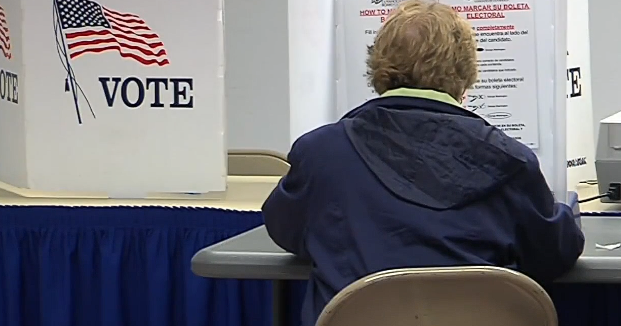Pandemic leaves domestic workers facing tough choices, often without a safety net
Before the coronavirus pandemic, Alicia Cleveland worked as a nanny for three families in the Atlanta area. But as the outbreak spread this spring, she had to give up the work to look after her three children, who were at home after schools closed and all of whom have pre-existing medical conditions.
The sudden loss of income and additional demands on her time as a mother were jarring. "To say my experience during the pandemic has been difficult would be an understatement," Cleveland said this week in a media call organized by the National Domestic Workers Alliance.
Cleveland's experience is hardly unique. Seventy-two percent of domestic workers reported losing all their clients as of the first week of April, according to a survey released by NDWA, which advocates on behalf of the nation's 2.5 million domestic workers — housekeepers, childcare workers and home health care aides.
Some domestic workers were fortunate in having employers who continued to pay them, but many others were let go or heard nothing at all from their clients, the advocacy group found. Although their hours have started picking up since July, their earnings remain well below pre-coronavirus levels.
"People are taking advantage of a lot of nannies because they are desperate for work right now," said Cleveland, a leader with the Georgia chapter of the NDWA, which issued guidelines this week on hiring nannies when asking them to double as online learning supervisors.
No Social Security
Maria Del Carmen, a housekeeper in Philadelphia for 24 years, saw her clients dwindle to just three during the pandemic, leaving her to rely on food banks to feed her children, according the New York Times.
Del Carmen, 58, was glad when a once-regular client — professors from the University of Pennsylvania and their children — asked her to come and clean in mid-August, only to later learn the family had contracted coronavirus and wanted their home disinfected, the newspaper reported.
While the Social Security Act provided retirement benefits and established a federal unemployment compensation program in 1935, the New Deal program excluded two categories of workers: domestic workers and agricultural laborers. That effectively leaves them without the same social safety net as other U.S. workers.
Domestic workers make $12.01 an hour on average and are three times as likely to live below the poverty line compared with other hourly workers, according to the Economic Policy Institute. Most lack benefits like sick leave and health insurance and often work without even a formal employment contract.
Along with lacking basic labor protections, nannies are now being asked to keep their charges in line as they attend online classes as most large school districts begin the year remotely, adding to their work responsibilities.
Reha Sterbin put her nanny on paid leave when New York shut down in March. But the family is set to bring her back into the fold, and plans to pay her more now that she'll be overseeing online classes and playdates for a first grader and a two-and-a-half-year old.
"We're giving her a raise when she comes back — there are significantly more responsibilities," said Sterbin, who hired her nanny through Hand in Hand, a network that advocates for fair treatment for domestic workers.
"Another level of stress"
For Cleveland, the start of the school year brought on "another level of stress and financial strain," with the local school district holding classes remotely but providing just one poorly performing computer for one of her three kids.
"We ended up having to buy three laptops out of pocket, which was a whole other set of stuff. But I cannot risk having my kids falling behind in school," Cleveland said.
Beyond the financial struggle, the experience of overseeing her kids' remote learning has been "an immense technological learning curve for me, but also the children — they are being asked to do tasks without being taught previously how to do them," she added.
All told, wages have plummeted for nannies now being asked to perform above what the job normally requires, relays Cleveland.
"They are being asked to risk their health and they are being paid less," she said. "We're asking parents to be flexible with scheduling because a lot of nannies have their own kids, and to take the time out to recognize that domestic work has always been real work, and we deserve the rights and protections to work safely and have fair compensation."




